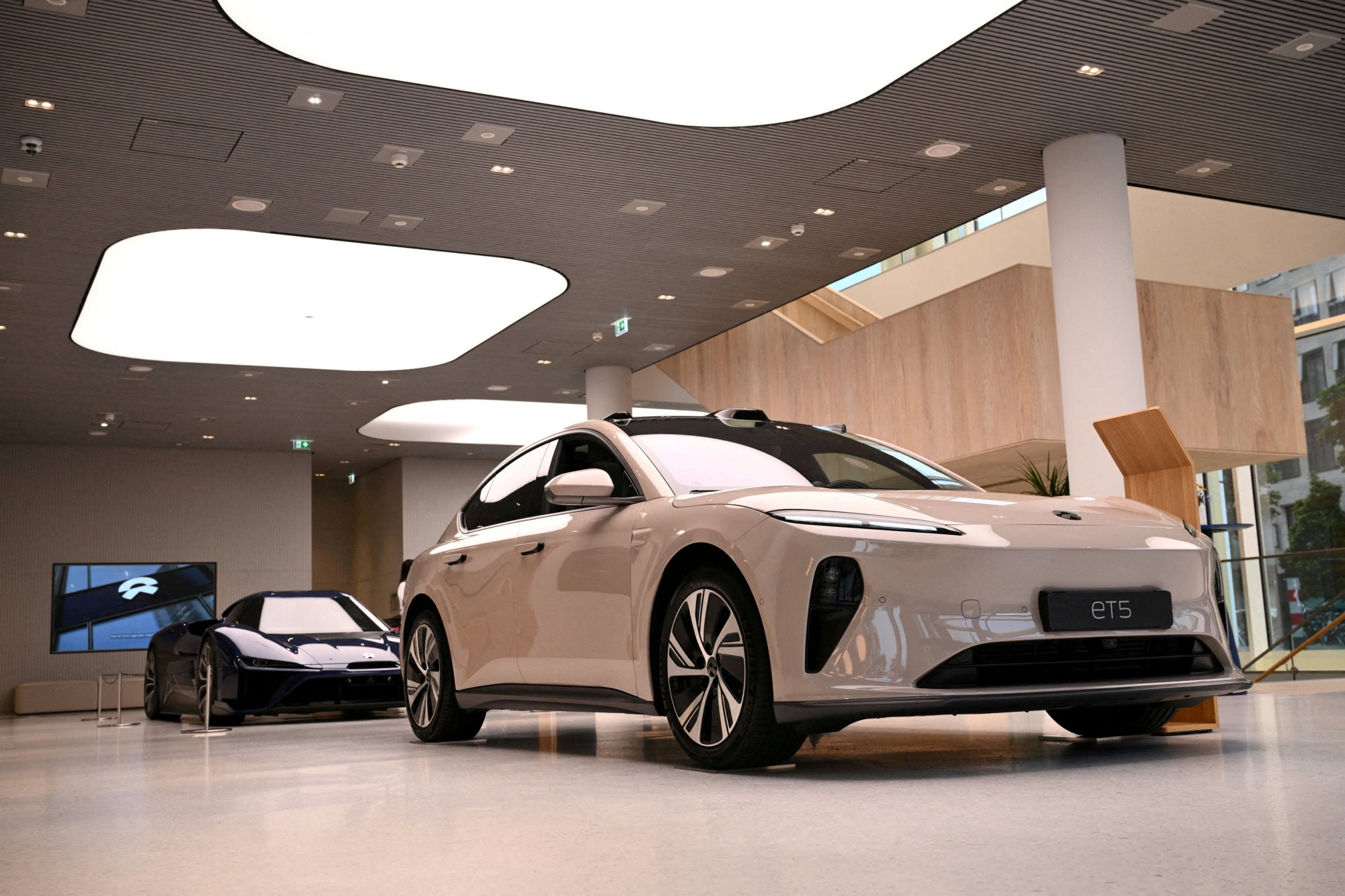Unprofitable Chinese electric vehicle (EV) makers, ravaged by a discount war at home and higher tariffs abroad, are stepping up cost-cutting measures and new model launches as they strive to survive in the cutthroat market.
Only those that can sustain their operations without resorting to external funding will stay in the country’s EV race as overcapacity woes loom, analysts said.
“As the domestic market becomes saturated and overseas sales in developed economies are hampered by punitive tariffs, the key players will have to be very efficient in cost control and refrain from splashy spending to save powder for the tough business environment ahead,” said Chen Jinzhu, CEO of Shanghai Mingliang Auto Service, an industry consultancy.
Do you have questions about the biggest topics and trends from around the world? Get the answers with SCMP Knowledge, our new platform of curated content with explainers, FAQs, analyses and infographics brought to you by our award-winning team.
“The market has entered a new phase, with all companies expected to face a do-or-die moment soon.”
Among the four unprofitable, publicly traded Chinese premium EV builders – Nio, Xpeng, Geely unit Zeekr and Stellantis-backed Leapmotor – only Nio reported a wider net loss in the three months ending September, year on year. All of them have made plans to stem their losses.
The mismatch between capacity and actual demand is stark. By the end of 2023, EV assemblers in mainland China were capable of producing 17 million electric cars annually, and the overall factory utilisation rate stood at 54 per cent, according to Goldman Sachs.
The US bank predicted that additional capacity of 3.2 million units would be added this year, less than the 5.2 million units of capacity added in 2023.
The China Association of Automobile Manufacturers forecast full-year deliveries of more than 11 million units in 2024, which would represent 54.5 per cent of that total capacity of 20.2 million – nearly unchanged from a year earlier.
The mainland is home to about 50 EV assemblers, but He Xiaopeng, CEO of Xpeng, said last year that only eight players would remain by 2027, because smaller players will not be able to survive the fierce competition in the fast-growing industry.
To date, only BYD, the world’s largest EV builder, Li Auto, Tesla’s nearest rival on the mainland, and Aito, backed by telecoms equipment giant Huawei Technologies, have eked out profits, while the bruising price war is ensnaring most of their domestic competitors.
Manufacturers hoping that international markets would help improve their bottom lines hit a speed bump this year after the US and the European Union decided to slap additional tariffs on Chinese-made electric cars.
“The US and EU are two of the biggest automotive markets in the world,” said Gao Shen, an independent analyst in Shanghai. “Carmakers that are unable to take a considerable share in the two markets cannot be defined as powerful international marques. If demand is not enough, existing production facilities will be redundant.”
To survive, some companies are betting on new models to increase market share.
Xpeng president Brian Gu told Reuters on Wednesday that the carmaker, which counts Volkswagen as a minority shareholder, would break even next year, buoyed by strong demand for its new models.
The company posted a net loss of 1.81 billion yuan (US$249 million) for the quarter ending September, narrowing 53.5 per cent from the same period in 2023.
Leapmotor and Zeekr said early this year that they expected to break even in 2025.

Nio, fresh off a US$471 million funding injection, expects to make a profit in 2026 after it debuts new models and a budget brand called Firefly, CEO William Li said during a results briefing on Tuesday.
China is the world’s largest automotive and EV market. The top players are at the global vanguard of the supply chain because they have capitalised on core technologies for batteries, self-driving technology and in-car entertainment, according to David Xu Daquan, China president of Bosch, the world’s largest car-parts supplier.
“Chinese electric-car makers will still look for opportunities abroad amid the goal of achieving carbon neutrality globally,” said David Zhang, general secretary of the International Intelligent Vehicle Engineering Association. “They need to be patient until some common ground can be achieved between Beijing and the foreign governments to avert trade friction.”
Last month, the EU voted to impose tariffs of up to 35.3 per cent on pure-electric cars made on the mainland. The new duties, which are on top of a standard 10 per cent tariff, will be in effect for five years.
The White House raised the tariff on Chinese-made EVs to 100 per cent from 25 per cent in August.
More from South China Morning Post:
- Chinese EV makers’ go-global drive hits bumps amid Beijing’s warning, failed deals
- BYD to sell Sealion SUV in Europe from 2025 in sign extra tariffs are ‘no big deal’
- China’s 10 millionth EV rolls out, as makers set sights on exports to digest overcapacity
- China’s EV market lures new entrants with eyes on BYD’s crown – at great peril
- How Chinese smartphone makers Xiaomi, Huawei transformed into EV contenders
For the latest news from the South China Morning Post download our mobile app. Copyright 2024.





